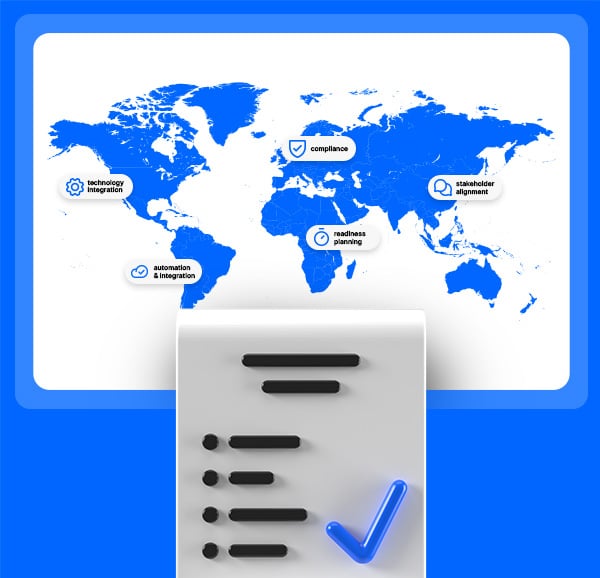As flexible and remote working has become much more commonplace over the last couple of years, HR management has become a much more complex endeavor in the globalizing world around us.
While many of the geographical barriers to work and recruitment have been broken down, in multinational companies it can be much more difficult to ensure every employee gets positive experiences, good interactions with HR, and opportunities to progress in their careers. This is for two reasons in particular: the first is that employees working remotely don’t always get the opportunity for face-to-face contact, which can make collaboration and interaction harder. The second reason, and the one that HR and payroll teams can take a leading role in solving, is overcoming the complication of dealing with employees, payroll currencies and tax regimes in many different countries simultaneously.
However, globalization, especially as a factor in business strategy, is here to stay, and so overcoming this complication is essential to good HR management and operations. This blog explores some of the key challenges in detail.
What is driving (and accelerating) globalization?
Much of the move towards globalization has been driven by labor and skills shortages in many Western economies. While some industries such as IT have had large skills gaps for some time, recent trends like the ‘Great Resignation’ and ‘quiet quitting’ have made it much harder for businesses to attract and retain talent. To solve those problems, increasing numbers of them are looking beyond their national borders to find talented staff who are able and willing to work remotely.
In some cases, the concept has been taken much further, to the extent that some organizations have begun ‘offshoring’ roles and departments more extensively. This allows them to hire employees with good levels of skill and experience, but who cost much less to employ than the equivalent workers in the business’s home country, giving them a competitive advantage.
How does globalization impact HR management and payroll?
For a business overall, being able to tap into new pools of skilled workers and more cost-effective countries to employ staff in different parts of the world can be very exciting. But the other side of the coin is that the administration of a more geographically diverse workforce can be extremely challenging from a HR management and payroll perspective. Four key areas stand out as potential pain points:
-
Talent management, recruitment, and onboarding: getting this right when employees are scattered all over the world, and potentially have substantially differing working arrangements, can be difficult. HR teams may have to alter their recruitment strategies to take into account different languages, currencies and cultural differences. Connected to this, remote onboarding processes should be looked at so that employees can easily get themselves up to speed in their new role, even if they’re unable to attend company premises in person.
-
Payroll processes: the move towards globalized workforces has major implications for payroll processing. For starters, remitting pay digitally may be essential for paying employees in a timely manner, and may require direct deposit or pay cards in countries where access to banking services isn’t easy or universal. Similarly, paperwork around onboarding, HR services, and even simple communications like expenses approvals all need to be digitized so that the global workforce can access them. As there is substantial overlap between HR and payroll in this area, good integration between systems and data is essential.
-
Compliance: every new country a business operates in represents another set of laws and regulations to comply with. Additionally, where a company is legally recognized as doing business, and where remote employees are officially classified as working, is critically important. Having a full set of time and attendance data for every employee is vital for demonstrating compliance with all relevant regulations, and proving that any business or employee location arrangements are above board.
-
Tax implications: connected to the previous point, multiple countries of operation (or of hiring employees) mean multiple tax regimes. From one employee to another, different rules will apply to how their pay is taxed, and what needs to be remitted to authorities in income tax or social security contributions. Employees are generally taxed in accordance with where they conduct their work (i.e. where they live if they work from home) but payroll teams have to keep on top of all relevant tax laws, including any changes that emerge over time.
In summary
It’s understandable if the above effects of globalization seem daunting, but these are all hurdles that HR and payroll teams have to clear in order to make international business a success. Technology can make a real difference in supporting the two departments, making it far easier to coordinate data, payroll requirements, and employee experiences worldwide. Additionally, partnering with a leading global payroll provider, either for support or to outsource some payroll and HR functions, can help in staying compliant and running efficient processes.
No matter how many countries you operate in, CloudPay’s global expertise and solutions can help you run smooth, seamless payroll. Take a closer look at our global payroll technology here.


